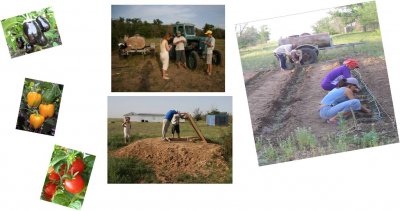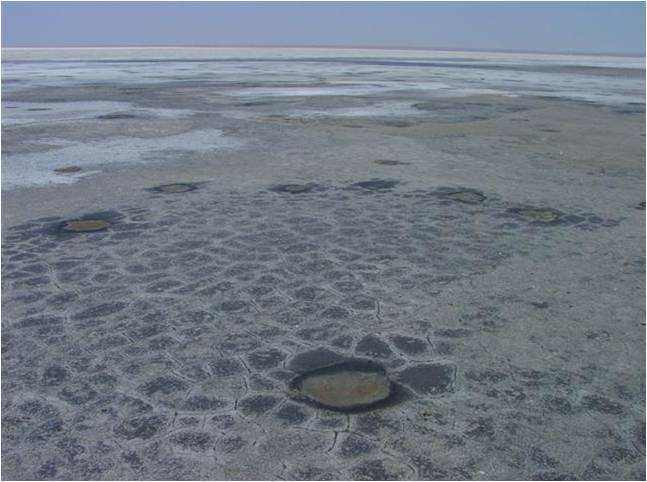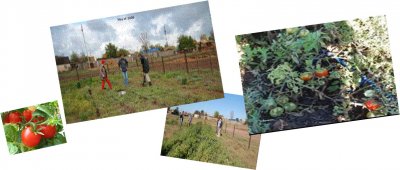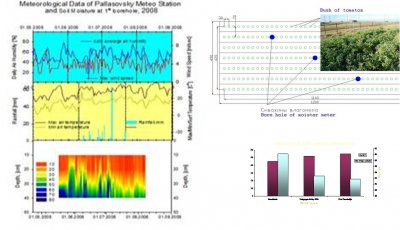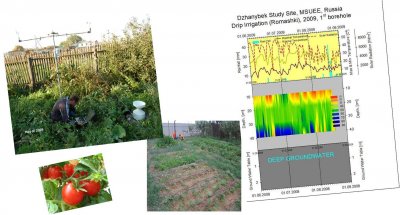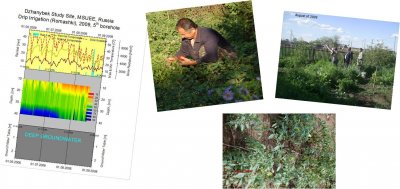| Field experiments |
 |
|
Three years of testing new sustainable land management technologies Author: Anatoly Zeiliguer
In the middle of tomato growing season, an empty well was filled with fresh water harvested from infiltrated snow melted water. The well was excavated in a local mezo-depression to collect/use lens of fresh water in salty ground water for drip irrigation. Not enough water for drip irrigation – water volume capacity of well and tomato plot demand was estimated with error.
Three years (2007-2009) of successful drip irrigation implementation/application at backyard of SOBOLEV family. Romashky village in the middle of semi-desert territory with very scarce water resources, Pallasovsky District, Volgograd Region, Russia. Dissemination of drip irrigation technology is proceeding at Romashky village and at the southern more dry part (village Elton) of Pallasovsky District.
|
|||||||||||||||||||||||||
Study sites
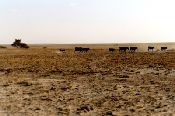
Acknowledgement
The DESIRE project was
|
DESIRE brought together the expertise of
26 international research institutes
and non-governmental organisations.
This website does not necessarily
represent the opinion of the
European Commission. The European
Commission is not responsible for
any use that might be made of the
information contained herein. 



